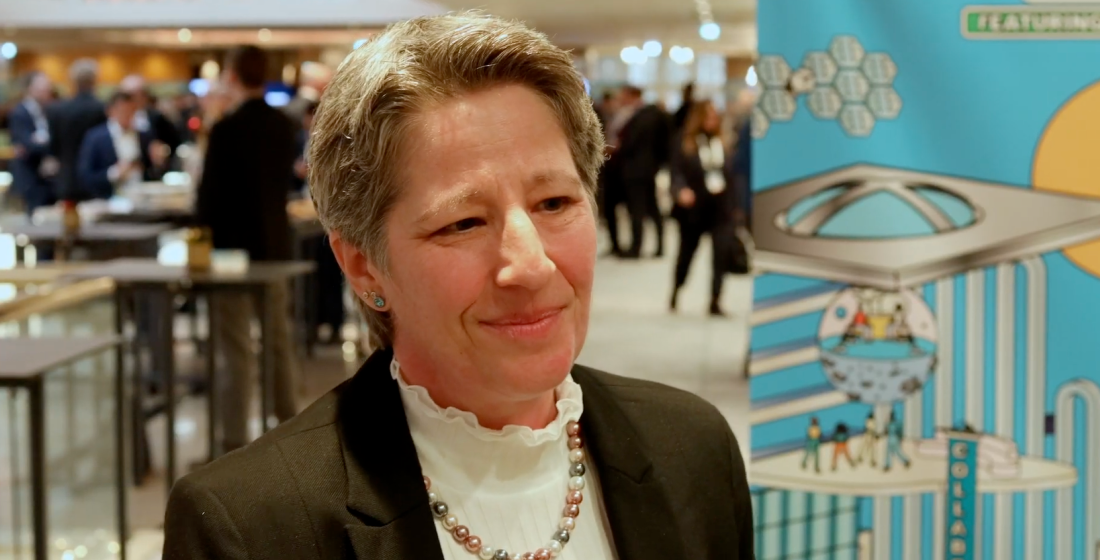Reversing the brain drain in export finance
The export finance industry has an ageing demographic. Much of the knowledge and talent in the industry comes from practitioners with over 30 years’ experience. However, with retirement just around the corner for many, it has never been more important to educate and attract young people to the community. But where will the talent come from, and who will teach the new generation?

The Future of Export Finance (FEX) is a new platform aimed at transferring this knowledge and talent to the younger generation of the export finance community. FEX, set-up by TXF’s co-founder Dominic Kloiber, ING’s director of Structured Export Finance, Oliver Roth, and Credit Agricole CIB’s director of International Trade & Transaction Banking, Christine Jordan, will provide a network for young people to interact across the trade finance community. From speaking on conference panels to knowledge sharing sessions to organising network lunches, the initiative is key to ensure the future success of the export finance industry.
TXF: Why the need for FEX and what is it?

Oliver Roth (OR): As representatives of the younger crowd, we see a generational problem in the export finance industry. There are a lot of older export financiers that have their existing networks – it’s kind of an old man’s club. Most of this demographic are now nearing retirement and will take with them a lot of knowledge and established networks.
In general, export finance is not something you can read a book about. You need to learn through experience. You need to work in the sector for a couple of years to gain that experience and knowledge, and then build from there.
There’s also no real opportunities for younger people in export finance to get together and exchange ideas and build a network of their own. A lot of the conferences focus on more senior export finance practitioners, partially due to the ticket prices and involved travel expenses. This usually means the younger people do not get a chance to attend and to network and get familiar with other bankers in the industry.
Conferences are one part, but there are other gatherings where it’s difficult for younger people to attend, or have the visibility to watch other junior bankers to give them a chance to build a network for themselves and to gain more presence in the industry and benefit from knowledge exchange.
That was the idea of FEX and with that in mind we continue that thought of retaining talent and making the product interesting to younger people as well as offering them a network platform. We also need to work on attracting people to the industry; we do believe it’s an interesting and challenging industry with all the different cultures, sectors and parties you work with. It offers quite a lot of variety. But none of us had experienced the product in our studies.
TXF: Who else is part of this network, or is it just a German thing?

Christine Jordan (CJ): For the moment it is, but as Oliver said this is where the idea was born and where the founding members began. It was actually at the TXF conference in Frankfurt last year.
The idea is quite clearly to have international chapters as well. To enable young people to have the same exchange of ideas and experience in their country or region amongst themselves and for broader topics between the chapters. To answer your question it is a German chapter that we founded but international chapters are to follow.
TXF: Given the need to retain the talent that is there, as well as bringing in new talent, where’s the next generation going to come from?
CJ: We’ve identified a few approaches to different areas that we wish to promote through our product. One idea is to point the product at the universities where we studied. For example, working with professors and placement/career centres will help us identify how we present our product whether that be as a guest lecturer, or in the context of a corporate presentation.
The other idea is to raise awareness of FEX within financial institutions. Where can we get this new fresh blood from? Well. That can be from syndications, credits, as well as project and trade finance.
TXF: So how are you going to make FEX more visible and attractive? What will entice young people to the industry, and what is sexy about export finance?
OR: One of the points – and the way we did it in the past within ING – was to team up with a lot of other departments quite regularly.
When you have an ECA-covered project financing you always deal with your project finance colleagues. Or, if you have some payment schemes also included in a structure you may work with trade finance colleagues. And then within that deal team you share how the ECA works and discover the differences between the products. Therefore, you have a chance to explain the benefits or perks of your product.
What we also do internally is to give presentations to apprentices and trainees, as part of their rotational programme to educate and attract them to our product.
CJ: What is really sexy about the ECA product is that in the end it is a financing tool for the borrower! But the borrower could well just issue a bond, bilateral loan, or a syndicated loan, and you could work in any one of these areas. However, that’s mostly abstract.
In ECA financing you have this clear relation to the capex that is going to be financed, which makes it tangible and gives a clear link to the real economy. And, I think especially young people miss that clear link and purpose.
You really get a clear picture of how you’re helping. Your purpose is clear, you’re helping that company to finance equipment that will put them in a position to grow or produce energy or the next level of cars, or whatever good it might be.
OR: It’s a cross-cultural industry, too. Which somewhat allows you to focus on regional preferences, if you like Asia a lot, you can focus on Asia and so on.
TXF: It’s fair to say the knowledge and talent you want to retain is with the retiring generation. How to you plan to transfer this knowledge to the younger generation?
OR: This is one of the main questions and challenges we still need to tackle and address: how do you transfer the knowledge from the very experienced bankers to the juniors? It’s not necessarily just doing more deals. There’s also training and other tools or things we can do to have that knowledge transferred. I mean there’s a reason why these guys have been in the business for over 30 years and have that experience. How can you put nearly 30 years of experience into two years of work? These are future discussions we need to address in our chapter and our FEX initiative. And, also provide opportunities to the older generation to open up and share their knowledge.
CJ: Yeah - and also maybe training sessions of best practice situations. For example, one of the FEX members during one of the quarterly meetings shows a complex structure that has proven to work, and highlights the specifics that made it eligible and/or bankable.
What I’ve felt is that the export finance world has been quite impermeable. The community knows there’s no text book to learn the product from and that really the knowledge comes from having structured deals. So people think that if this bright young banker has only been in export finance for two years he will be no good, which just isn’t true if you find a way to transfer that specific knowledge to the bankers.
TXF: Can you please elaborate on your idea of creating a network platform for younger people? Do you mean having coffee, doing a presentation, or are we talking of something on a bigger scale?
OR: The idea is first of all to have the opportunity to meet on a regular basis that can be in terms of normal industry meetings such as the TXF conference, or other conferences, but also to organise lunches and other meeting opportunities. The idea is to address topics we want to work on through little groups that meet regularly.
Such topic can be to contact old professors and make a product presentation to students in a finance class. Others may want to focus on working on the product in general and for instance provide input to current small ticket initiatives. Maybe someone within FEX has a new idea too, so you jump on that topic and form a little group with others that are interested, and bring that topic forward.
CJ: The initiative is something we really want to institutionalise. We also explicitly stated that in the founding round that there will be work streams as well as something like the bigger topic national content discussion. We want each member to feel responsible for at least one of these work streams and to actively take part in it. After two years we will review the group and see who has been an active member.
What is not our intention is to have a dead pool of addresses in our inbox that meet for coffee once a year. Everybody has to participate and promote his or her work stream and topic.
TXF: So the future is bright really, it’s just about tapping into the right people?
CJ: That is one important point because that’s also part of what FEX aims at achieving for the existing professionals. One thing is to bring fresh blood into the industry but we also want to keep the talent we already have. We want to give a platform to the youngsters who are showing the skills, and give them a chance to step-up. Now Oliver and I have a panel on this at TXF Prague, it will give us a chance to start getting used to speaking on a panel, enlarge our network and have in-depth discussions with decision makers in the industry. And that is definitely a key goal of our FEX initiative, too.
OR: One point to add is that for now the FEX chapter is for banks only. This is because we needed to start somewhere and the idea came from us as bankers. Eventually we will open up FEX to exporters, ECAs and lawyers, as the generational issue is the same for them, but the idea is to stick to the bankers for now and see how it evolves.
CJ: Absolutely, and exporters have started saying this explicitly. I know a few exporters that have cited a brain drain due to retirement over the next five years. It’s definitely not only an issue for us, but we have to start in our field.
If you are interested in setting up an FEX chapter in your city please contact dominik.kloiber@txfmedia.com





